Daniel Poulin tells us that this filmed performance of Gould on February 2o, 1957 is the only one with a live public. He plays Bach’s Partita no5: Sarabande and Courante.
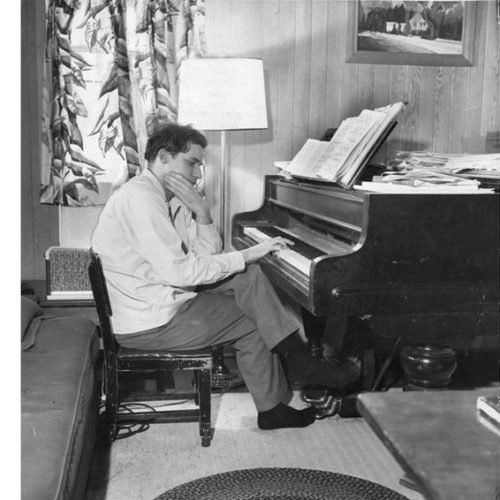
Daniel Poulin tells us that this filmed performance of Gould on February 2o, 1957 is the only one with a live public. He plays Bach’s Partita no5: Sarabande and Courante.

But who’d have thought Kate Bush?
Sensationally musical.
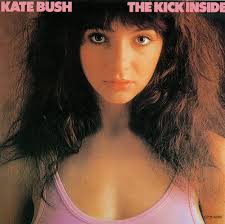
Wise Music Group, the leading classical publisher, has appointed Wiebke Busch as the new Managing Director, UK Rights Companies.
She succeeds the veteran James Rushton, who is retiring after a 40-year career.
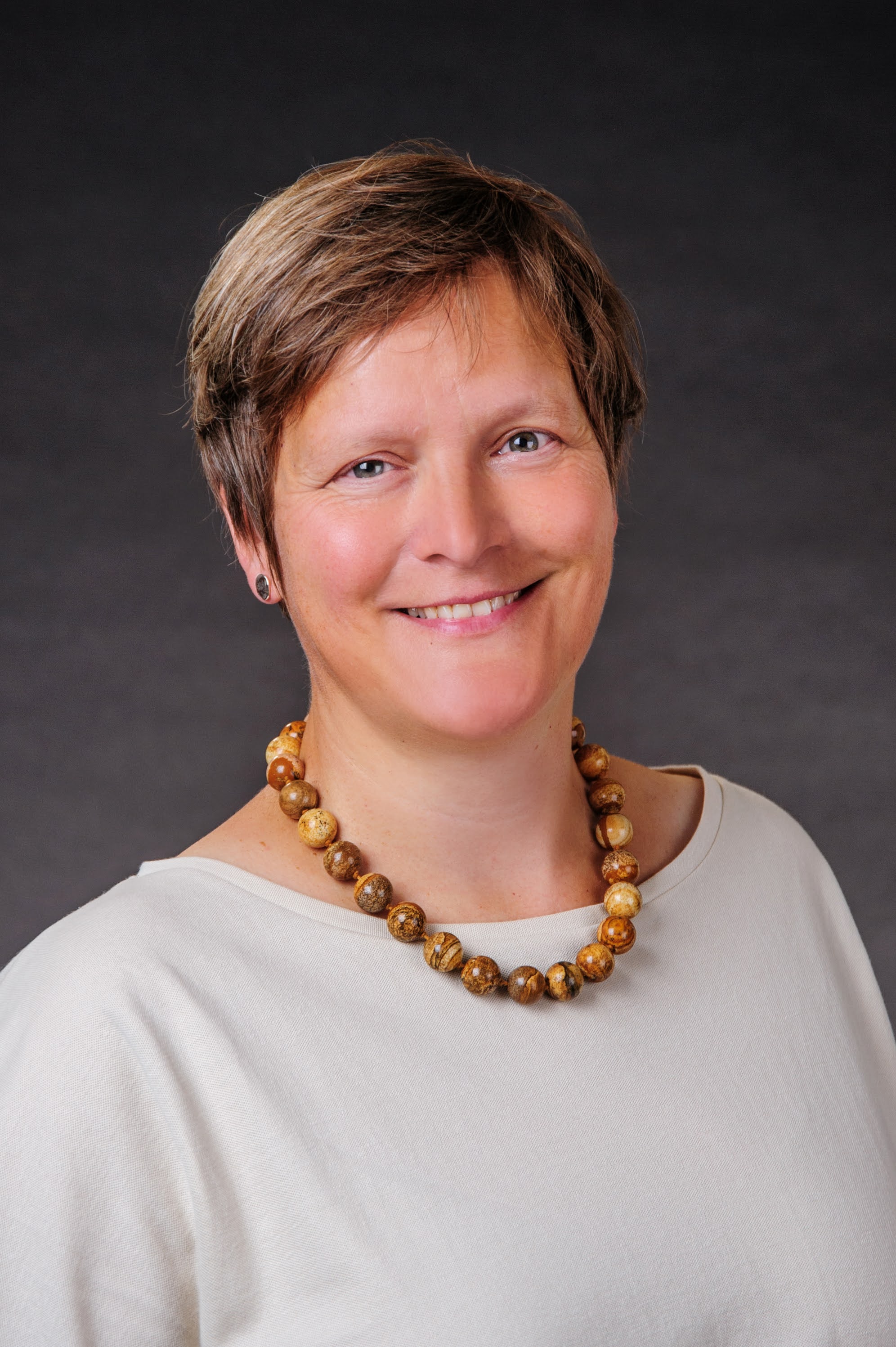
Welcome to the 109th work in the Slipped Disc/Idagio Beethoven Edition
Symphony No. 9 in D minor op. 125 (part 2)
(See part 1 here and how to choose a Beethoven 9th here).
No sooner did the work exist than the world began wondering what it might mean beyond its music and words, what it signified for Germans as a nation and for humanity as a whole. The young Robert Schumann wrote that ‘with his Beethoven, the German forgets that he has no school of painting; with Beethoven he imagines that he has reversed the outcome of battles lost to Napoleon.’ Beethoven, in Schumann’s view, unlocks the fantasy German for whom history is a never-ending victory.
Richard Wagner, as a teenager, was overwhelmed: Beethoven’s Ninth Symphony became the mystical goal of all my strange thoughts and desires about music. I was first attracted to it by the opinion prevalent among musicians, not only in Leipzig but elsewhere, that this work had been written by Beethoven when he was already half mad. It was considered the ‘non plus ultra’ of all that was fantastic and incomprehensible, and this was quite enough to rouse in me a passionate desire to study this mysterious work. At the very first glance at the score, of which I obtained possession with such difficulty, I felt irresistibly attracted by the long-sustained pure fifths with which the first phrase opens: these chords, which, as I related above, had played such a supernatural part in my childish impressions of music, seemed in this case to form the spiritual keynote of my own life. This, I thought, must surely contain the secret of all secrets, and accordingly the first thing to be done was to make the score my own by a process of laborious copying. I well remember that on one occasion the sudden appearance of the dawn made such an uncanny impression on my excited nerves that I jumped into bed with a scream as though I had seen a ghost.
The symphony at that time had not yet been arranged for the piano; it had found so little favour that the publisher did not feel inclined to run the risk of producing it. I set to work at it, and actually composed a complete piano solo, which I tried to play to myself. I sent my work to Schott, the publisher of the score, at Mainz. I received in reply a letter saying ‘that the publishers had not yet decided to issue the Ninth Symphony for the piano, but that they would gladly keep my laborious work,’ and offered me remuneration in the shape of the score of the great Missa Solemnis in D, which I accepted with great pleasure.
Wagner went on to revise Beethoven’s score for an 1846 Dresden performance (his version has been recorded for piano and voices here), inaugurated his Bayreuth theatre the the Ninth in 1872 and published an analytical essay titled The Rendering of Beethoven’s Ninth Symphony. ‘Everything significant about this symphony comes from Richard Wagner,’ wrote Richard Strauss in his conducting score. The French composer Charles Gounod provoked a row by defending Beethoven’s original manuscript against Wagner’s amendments.
Gustav Mahler, who approved of Wagner’s changes, arguing that improvements had improved in efficacy and range since Beethoven’s time, conducted the symphony in 1900 with 100 musicians and 500 singers in Vienna’s Musikverein – ‘carrying out Beethoven’s wishes,’ as he put in, ‘even in seemingly insignificant details and ensuring that nothing the master intended should be sacrificed or drowned ina general confusion of sound.’ He was fired soon after as chief conductor of the Vienna Philharmonic.
The symphony received its British premiere at the hands of Sir George Smart in March 1825, its French debut with Francois-Antoine Habeneck in March 1831. Hector Berlioz imagined himself conducting it on a ship on the high seas. Wagner inserted echoes of the Ninth in his opera, The Flying Dutchman. The Austrian socialist movement, taking its cue from Friedrich Engels’ passion for Beethoven’s fifth, staged concerts of the ninth performed by the working class. Nationalists blazoned the work as a token of Teutonic superiority. The Nazis ordered a performance of the Ode to Joy at the opening ceremony of the 1936 Berlin Olympics. Thirty-five years later, the Ode was adopted as the anthem of the European Union. At the fall of Communism, Leonard Bernstein conducted it amid the ruins of the Berlin Wall.
For reasons long inscrutable to the western mind, it became a fixture of New Year’s Eve celebrations in Japan, where it is known as ‘Daiku’ or ‘Big Nine’*. In December 2009 there were 55 performances of the Ninth in Tokyo alone, with choruses ranging in size from 6,000 to 10,000 voices.
The Japanese fascination with the Ninth apparently originated in 1914 with the capture of a German military garrison at Tsingtao in eastern China (Japan was on the Allied side in the First World War). Over the next four years, at a camp in Tokushima, German prisoners of war formed an orchestra. Ther guards were impressed by the ninth symphony and demanded peacetime concerts back home. By the 1930s Japan had several excellent professional orchestras, trained and conducted by Russian and German refugees, such as Klaus Pringsheim, Mahler’s former assistant in Vienna.
The New Year custom was started by a Polish-Jewish refugee Joseph Rosenstock, who conducted the Ninth on national radio on December 31, 1940 for the 2,600th anniversary of the creation of Japan. Someone, possibly Rosenstock, told the Japanese that there was a tradition at the Leipzig Gewandhaus to sound the symphony’s final chord one second before midnight. The myth appealed to Japanese sentiment and stuck fast. Rosenstock stayed on in Japan until 1946 when he got a job with New York City Opera. He is the true begetter of Japan’s New Year’s Eve traditions.A recent Tokyo recording by Masaaki Suzuki and the Bach Collegium Japan demonstrates significant stylistic deviations from the international norm, along with an irrepressible audience enthusiasm.
No other symphony in the entire western canon has obtained, for better or worse, such universal resonance. The separatists in Rhodesia used it as a flag of white supremacy. The Maoists sang the Ode in Chinese until Chairman Mao banned western music in the Cultural Revolution.
Penniless Jews in Polish ghettos sang it in Yiddish.
During the 2020 Coronavirus locked down, Egyptian musicians created a new realisation on Arab instruments.
There appear to be no barriers that this symphony cannot break down. But we are still no closer to defining an ideal performance.
More on this long-running quest tomorrow.
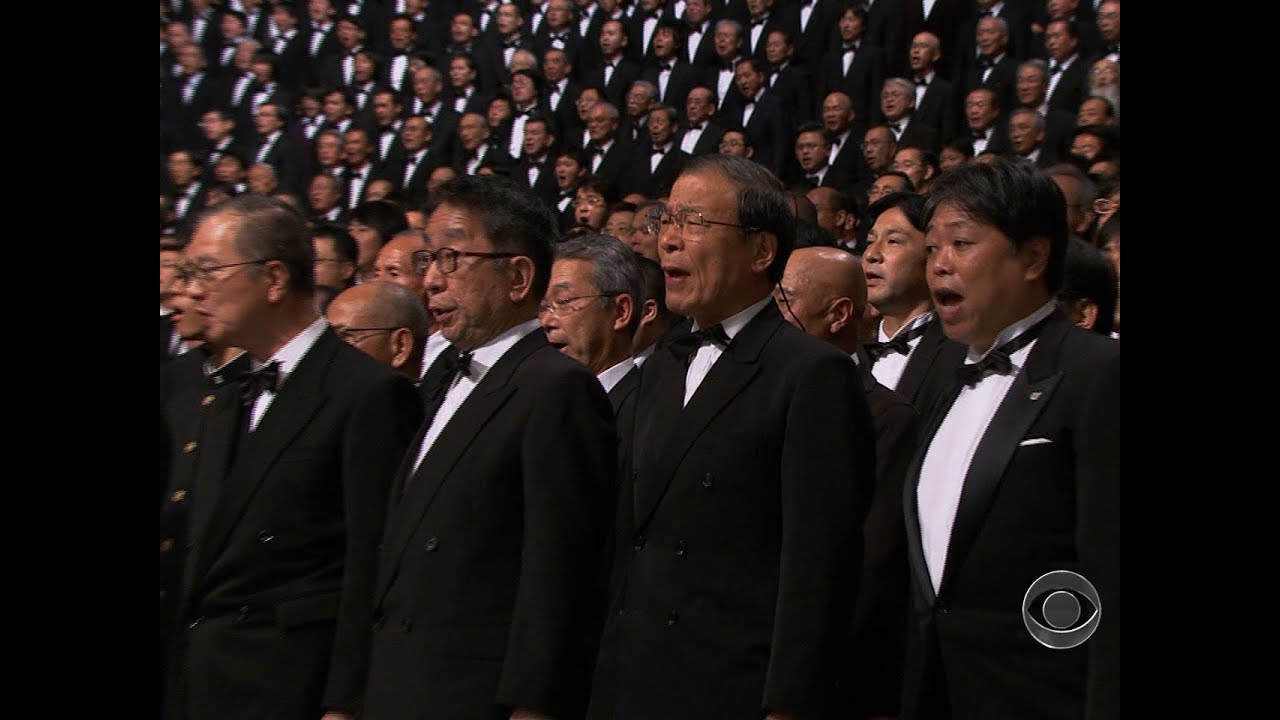
* Reader Kimiyo Watanabe points out:
You wrote ‘it became a fixture of New Year’s Eve celebrations in Japan, where it is known as ‘Daiku’ or ‘Big Nine’. It’s such a trivial thing, but I’d like to point out that in this context in Japanese, Daiku doesn’t mean Big Nine, but “Number Nine”. The pronunciation of both big and number (in this case) are the same and “ku” here means nine. And just “Dai-ku”, a little unusual way of pronouncing number nine, refers specifically to no other than Beethoven’s ninth symphony. Other composers’ symphony #9 you have to say, for example, “Mahler’s symphony dai kyuu-ban (ban is a counter word for serial number or turn/order)”, and as for Beethoven’s piano sonata, or violin sonata #9, “piano sonata dai kyuu-ban” or “violin sonata dai kyuu ban” respectively. This also shows how Beethoven’s Daiku has a special place in Japan’s culture.
From the Lebrecht Album of the Week, a rare 5-star:
The arrival of an altogether astonishing album has made me break my solemn (and unrealistic) pledge to review only neglected composers during the Covid pandemic. Nobody could possibly call Rachmaninov neglected, although with the disruption of a regular supply of live music with a living, breathing audience this recital of solo pieces has the shock of the new …
Read on here.
And here.
In The Critic.
In Spanish.
In Czech.
And French.
Other languages may follow.
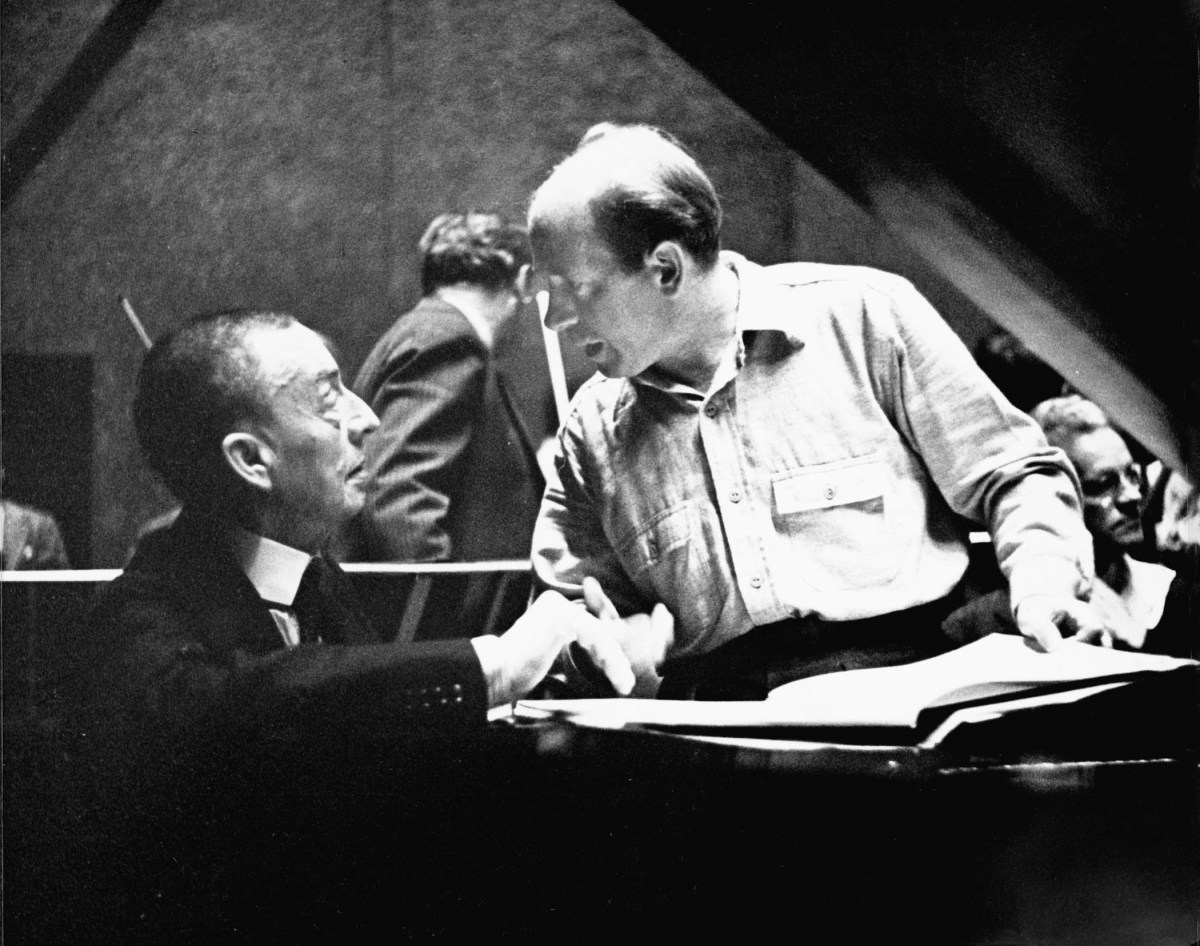
The conductors Joshua Weilerstein and Sakari Oramo have put together a support petition:
This is an open letter decrying the appalling treatment received on social media and elsewhere by Dalia Stasevska, Principal Guest Conductor of the BBC Symphony Orchestra, regarding programming decisions for the Last Night of The BBC Proms. This letter is not meant to address the debate over whether certain music should or should not be included in the program. That is a healthy and necessary conversation to be had elsewhere, and opinions may differ. But there is no excuse for the abusive, threatening, and xenophobic language that has been directed at Ms. Stasevska over the course of this week.
We condemn in the strongest possible terms the disturbing threats of physical brutality made against Ms. Stasevska. We condemn the vulgar and sexist language used to address her. And we condemn the xenophobia, both casual and insidious, that marks these attacks, implying that a musician cannot advocate for artistic choices to be made in a country that they were not born in. As an international community of musicians, artists, and administrators, we feel it is important to stand up and speak out against this language, and to affirm our support of Ms. Stasevska.
We hope that this letter will reach those who engaged in such vitriol. We hope they will reflect on their decision to verbally abuse someone they’ve never met and/or to threaten them with physical harm. Music is a communal experience, and such experiences are all the more precious at a time when performances are necessarily few and far between. To attack a musician in this way is an attack on us all. We stand in solidarity with Dalia Stasevska, and we send her and the BBC Symphony our very best wishes for a wonderful performance.
Signed,
Joshua Weilerstein, Artistic Director, Orchestre de Chambre de Lausanne
Sakari Oramo, Chief Conductor, BBC Symphony Orchestra, Professor of Conducting and Orchestral Studies, Sibelius Academy
Anthony Marwood MBE, Violinist
Robert Gibbs, Leader, Royal Ballet Sinfonia
Thelma Handy, Leader, Royal Liverpool Philharmonic orchestra
Michael Atkinson, Cellist BBC Symphony Orchestra
Doug Hagerman, Chairman of the Board, League of American Orchestras
Maria Leino, First Concertmaster, Lahti Symphony
Martin Owen, Horn, BBC Symphony Orchestra
Jamie Campbell, Principal 2nd Violin, Aurora Orchestra, BBC Scottish Symphony Orchestra
Ryan Bancroft, Principal Conductor Designate, BBC National Orchestra of Wales
Korbinian Altenberger, Concertmaster Bavarian Radio Symphony, Professor Hochschule für Musik Würzburg
Noah Bendix-Balgley, First Concertmaster, Berliner Philharmoniker
Pekka Kuusisto, Violinist
Eva Ollikainen, Conductor
Tuula Sarotie, General Manager Finnish Radio Symphony Orchestra
Jari Valo, Concertmaster, Finnish Radio Symphony Orchestra
Richard Waters, Co-Principal Viola, London Philharmonic Orchestra
Harri Mäki, Professor of Woodwinds, Sibelius Academy of UniArts Helsinki
Matthew Hunt, Clarinetist, Deutsche Kammerphilharmonie Bremen
Solange Joggi, Orchestre de Chambre de Lausanne
Suzy Perelman, Broadway Violinist
Marianna Shirinyan, Concert pianist, Professor, Norwegian Academy of Music
Aram Demirjian, Music Director, Knoxville Symphony Orchestra
Anja Manthey, Deutsche Kammerphilharmonie Bremen
Emily Davis-Robb, Associate Leader, Royal Scottish National Orchestra
Prof. Dr. Rainer Manthey
Elena Urioste, Violinist, Co-Founder of Intermission
Tom Poster, Pianist, Director of Kaleidoscope Chamber Collective
Liisa Koivuranta, Violinist
Lotta Poijärvi, Violist, Helsinki Philharmonic Orchestra
Lea Tuuri, Doctoral student, Sibelius Academy
Anna Göckel, Violinist
Vivian Hornik Weilerstein, Pianist, New England Conservatory
Donald Weilerstein, Violinist, New England Conservatory, Juilliard School
Ben Palmer, Chief Conductor, Deutsche Philharmonie Merck, Artistic Director, Covent Garden Sinfonia
Helmi Horttana-Suoranta, Finnish Radio Symphony Orchestra
Wendy Richman, Founding Violist, International Contemporary Ensemble
Dr. Yotam Baruch, Chamber Musician
Søren Nils Eichberg, Composer
Gwendolyn Cawdron, Associate Principal Viola, Royal Liverpool Philharmonic
Paula Muldoon, Leader, Cambridge Philharmonic and Cambridge String Quartet
Dr. Yundu Wang, Pianist
Eva Thorarinsdottir, Associate Leader, Royal Liverpool Philharmonic
Cecily Ward, Violinist
Alisa Weilerstein, Cellist
Denitza Kucera, Violin, Luzerner Sinfonieorchester, Founder and First Violinist, Vector String Quartet
Valentin Uryupin
Guido Houben, Director, Megève Festival
Matilda Kaul, Violinist, Daedalus Quartet
Tomas Djupsjöbacka, Conductor/Cellist, Meta4 Quartet
Erika Maalismaa, Violinist
Ruth Reinhardt, Conductor
Perry Tal, Violinist, West-Eastern Divan Orchestra
Tomoko Fujita, Cello Faculty, Montclair State University and Hofstra University
Lina Gonzalez Granados, Artistic Director Unitas Ensemble, Boston MA
Elinor Gow, BBC Philharmonic
Caroline Pether, Manchester Camerata
Anna Stuart, Royal Liverpool Philharmonic Orchestra
Rosemary Attree, Hallé Orchestra
Anya Muston, BBC Philharmonic
Rakhi Sing, Manchester Collective
Rachel Meerloo, Hallé Orchestra
Tom Beer, Bournemouth Symphony Orchestra
Jennifer Langridge, Freelance Cellist
Nick Cartledge, Freelance Flautist
Linton Stephen, Freelance Bassoonist
Steven Proctor, Hallé Orchestra
Ben Gilmore, Philharmonia Orchestra
Alison ‘Mynx’ Wood, Freelance Musician
Christina Bouey Violinist, Ulysses Quartet, Concertmaster, Cayuga Chamber Orchestra
Paul Biss, Violinist, New England Conservatory
Jennifer Elowitch, Director of Music, Walnut Hill School for the Arts (MA)
Daniel Kidane, Composer
Paulette Bayley, Hallé Orchestra
Ruth Chinyere Gibson, Aurora Orchestra, Ensemble 360, and City of London Sinfonia
Steven Burnard, BBC Philharmonic
Greta Mutlu, Freelance Violinist
Eugene Nakamura, Munich Radio Orchestra
Christine Anderson, Hallé Orchestra
Mark Heron, Royal Northern College of Music
Steven Copes, Concertmaster, St. Paul Chamber Orchestra
Amy Jolly, Freelance Cellist
Sarah Masters, Freelance Clarinetist
Ross Snyder, Tesla Quartet
Maya Jacobs, Violist and Administrator
Felix Thiedemann, Artistic Director, Vielklang Festival, Professor, Stuttgart Musik Hochschule
Felix Umansky, Cellist, Harlem Quartet
Michael Winer, Concertmaster, Farmington Valley Symphony Orchestra
Drew Comstock, Cellist
Lisa Barksdale, Resident Musician at Community MusicWorks
Dr. Molly Gebrian, University of Arizona
Päivi Pousar, Violinist, Secretary General
Päivi Severeide, Principal Harpist, Turku Philharmonic Orchestra
Salla Savolainen, Violinist, Finnish Radio Symphony Orchestra
Terhi Mali, violinist
Antti Suoranta, Percussionist and Teacher
Alex Taylor, Head of Artistic Planning, Oslo Philharmonic
Barbora Hilpo, Violist
Matti Kyllönen, Concert Piano Technician
Cecilia Oinas, Lecturer Of Music Theory, Pianist, Music Researcher, Sibelius Academy
Petri Sainio, Guitarist & Teacher
Miika Vintturi, Pianist
Riikka Sintonen, Violinist, Helsinki
Marika Tulivuori, Freelance Clarinetist, Executive Producer
Marko Hilpo, Pianist, Theatre Music Director, Arranger, Orchestrator
Juliana Pöyry, Violinist
Ivaylo Dechkoff, Violinist, Arranger, Teacher, Producer
Elisabet Skaar Sijpkens, Stavanger Symphony Orchestra
Tumoas Pulakka, Violinist, Finnish Radio Symphony Orchestra
Stephanie Block, Violist, New World Symphony
Victoria Ford
Lizzie Burns, Freelance Bassist
Carrie Kourkoumelis, Director, Classic Harps of New England
Emily Mowbray, Royal Liverpool Philharmonic Orchestra
Taru Kircher, Finnish Radio Symphony Orchestra
Tuomas Ikonen, Finnish National Opera and Ballet Orchestra
Jaakko Kuusisto, conductor/composer
Daniel Mitnitsky, Cellist, Aviv Quartet, Orchestre de Chambre de Lausanne
Mika Kapuri, Stage Manager
Silja Salorinne, Violist, Finnish National Opera and Ballet
Pirta Pöllänen, Violinist
Terhi Dostal, Pianist
Alexander Sitkovetsky, Violinist
Maria Puusaari, violinist Finnish Radio Symphony Orchestra
Ankush Kumar Bahl, Music Director Desígnate, Omaha Symphony
Pauliina Valtasaari, Researcher/Coach/Violinist
Elina Vähälä, Violinist, Professor, MDW Wien
Mirka Malmi, Violinist Finnish Radio Symphony Orchestra
Hjalmar Kvam, Stavanger Symphony Orchestra
Colin Rockson, Former Bassoonist, Commercial Real Estate Professional
Anne Francis Bayless, Cellist, the Fry Street Quartet
Antti Rissanen, Trombonist, Freelance Conductor
Emma Mali, Violinist
Anna Lapwood, Organist, Conductor, Broadcaster
Lucy Baker, Norrlandsoperan Symphony Orchestra, Sweden
Cristina Ocaña Rosado, Opera North
Carol Ella, London Symphony Orchestra
Bea Schirmer Hallé Orchestra
Ilana Gothoni, Violinist
Ingerine Dahl, Violinist
Anu Holländer, Pianist
Liisa Karikuusi Finnish National Opera and Ballet Orchestra
Matthew Szymanski, Executive Director, Phoenix Orchestra Boston
Frank Braafhart, Stavanger Symphony Orchestra
Michelle Abraham, Associate Concertmaster, Tucson Symphony Orchestra
Iman Khosrowpour, Conductor, Irvine Valley College Symphony Orchestra, Founder and Artistic Director, Irvine Music Festival
Ed Yim, President, American Composers Orchestra
Lara Secord-Haid, Soloist
Sondre Fjose Sandberg, Stavanger Symphony Orchestra
Tim Kantor
Henry Kramer, Chair of Piano, Schwob School of Music
Deborah Schlenther, 1st Violin, Royal Ballet Sinfonia
Eero Munter, Bassist
Tuukka Haapaniemi, Voice Artist, Bass Singer, Helsinki
Andreas Helling, Turku Philharmonic Orchestra
Martina Simola, Trumpet, Lohja City Orchestra
Anna-Leena Haikola, Violinist, Helsinki Philharmonic Orchestra
Kaarina Ikonen, violist, Helsinki Philharmonic Orchestra
Jenni Lättilä, Head of Voice department, Sibelius Academy
Becky Gould, Royal Liverpool Philharmonic Orchestra
Laurent Zufferey, Conductor
Becky Steventon, Royal Liverpool Philharmonic Orchestra
Tiberiu Buta, Hallé Orchestra
Minn Major, London Philharmonic Orchestra
Aleksi Trygg, Violinist
Eero Lehtimäki, Conductor
Anna Oramo, Doctor of Music, Espoo Finland
John Devlin, Music Director, Wheeling Symphony Orchestra
Indira Rahmatulla, Cellist, Orchestre de Chambre de Lausanne
David Friend, Pianist
Lara St John, Violinist
Mark Levy, Circles Around the Sun
Tito Munoz, Music Director, The Phoenix Symphony
Helene Koerver, Brussels Philharmonic
Maria Badstue, Conductor
Elina Raijas, Flutist, Helsinki Philharmonic Orchestra
Anna Angervo, Violinist, Tampere Filharmonia
Hanna Kosonen, Music administrator, Pianist
Ritva Kaukola, Violist, Finnish Radio Symphony Orchestra
Raúl Gómez-Rojas, Music Director, Metropolitan Youth Symphony (Portland, OR)
Martta Wahlberg, Violist, Finnish Radio Symphony Orchestra
Jussi Tuhkanen, Violist, Tapiola Sinfonietta
Niklas Pokki, DMus, Pianist, Artistic director, Mänttä Music Festival
Riikka Repo, Violist
Kati Paajanen, Violinist, Orquesta Filarmónica de Gran Canaria
Laura Arpiainen, Violinist
Catherine Cosbey, Cavani String Quartet
Ilmari Hopkins, co-principal cello, Stavanger Symphony Orchestra
Merry Cadence Peckham, Chair, Chamber Music at the New England Conservatory of Music
Ande Niemi, Orchestra Attendant, Finnish National Opera Orchestra
Giuseppe Gentile, Clarinetist, Finnish Radio Symphony Orchestra
Minna Pensola, Violinist
Anna Gebert, Violinist, Professor, Zürich Hochschule der Künste
Minna Linnove-Pulakka, Violist, Finland Opera Orchestra
Esther Harriott, Freelance Cellist
Kate Suthers, City of Birmingham Symphony Orchestra
Richard Blake, City of Birmingham Symphony Orchestra
Christina Knox, BBC Philharmonic
Rebecca Whettam, Freelance Cellist
Lily Whitehurst, BBC Philharmonic
Peter Nagle, Composer/Sound Artist
Rowena Kennally, Freelance Violinist
Antti Tikkanen, Violinist
Dr. Hilary Glen, Cellist
Matti Tähkävuori, Stage Manager, Helsinki Philharmonic Orchestra
Annie Fullard, Violinist, Cavani String Quartet
Taija Angervo, Violinist, Concertmaster Finnish Radio Symphony Orchestra
Anna Rinta-Rahko, Bass, Lahti Symphony Orchestra
Terhi Ignatius, Violinist
Eva Trygg, Flutist, Lahti Symphony Orchestra
Mari Järvi, Pianist, Accompanist
Kirill Kozlovski, Pianist
Ilkka Ilari Angervo, Principal Viola, Finnish Radio Symphony Orchestra, New Helsinki Quartet
Henriikka Teerikangas, French Horn
Tuuli Talvitie, Violinist, Finnish National Opera Orchestra
Saara Nisonen Öman, Violinist, SRSO
Tanja Nisonen, French Horn, Turku Philharmonic Orchestra
Bridget Allaire-Mäki, Bassoon, Tapiola Sinfonietta
Katariina Ruokonen, Violist, Lahti Symphony Orchestra
Heljä Räty ,Tapiola Sinfonietta Finland
Taru Lehto, Violist, Lapland Chamber Orchestra
Ivan Zavgorodniy, Co-principal Solo Double Bass, Stavanger Symphony Orchestra
Sanna Palas-Lassila, Cellist, Lahti Symphony Orchestra
Nils Schweckendiek, Conductor; Professor, Sibelius Academy
Linda Suolahti, Violinist
Jaakko Ilves Violin Department, Sibelius Academy
Hannah Holsten, Violinist
Laura Åkerlund, CEO & Artistic Director, Comic Opera Helsinki
Seppo Santeri Heikkinen, Docent, University of Helsinki
Tapio Lokki, Professor, Aalto University
Elisar Riddelin, Conductor, Composer
Anniina Ahlström, Producer
Hannu Perttilä, Principal Oboe, Helsinki Philharmonic
Matthew Whittall, Composer, Instructor, Sibelius Academy
Aliisa Neige Barrière, Violinist, Conductor
Maria Itkonen, Musician
Julia Wallin, Pianist
Kanerva Mannermaa, Violinist
Niklas Hagmark, Cellist, Arranger
Yana Deshkova, VIolinist
Ivan Zecevic, Violist
Sebastian Silén, Violinist
Sini Repo-Hagmark, Oboist
Olli Kilpiö, Violist, Finnish Radio Symphony Orchestra
Liv Opdal, Cellist, SSO
Iryna Gorkun-Silen, Flutist
Laura Heikinheimo, Executive Recording Producer, Finnish Radio Symphony Orchestra
Riitta Parviainen, Retired Music Teacher
Synnøve Gustavsson, Violinist
Kristian Sallinen, Violist
Pauline Fleming-Unelius, Violinist, Finnish Radio Symphony Orchestra
Kaisa Kallinen, Violinist, Finnish Radio Symphony Orchestra
Luukas Hiltunen, Musician
Esko Heikkinen, Freelancer
Ilya Ram, Conductor
Camilla Vilkman Co-Principal viola, Finnish Radio Symphony Orchestra
Minna Lindgren, Writer and Journalist
Joel Ward, Singer and Recording & Mixing Engineer
Riitta-Liisa Ristiluoma, Solo Violist, Finnish National Opera
Ilya Gringolts, Violinist
Jarkko Launonen, Cellist
Anna-Maria Helsing, Conductor
Marjukka Päivärinne, Pianist, Lecturer in Piano
Eija Kankaanranta, Kantele Musician, Doctor of Music
Annukka Nevalainen-Lius, Violinist
Aku Sorensen, Conductor and Violinist
Niamh McKenna, Principal Flutist, Helsinki Philharmonic Orchestra
Lauri Kilpiö Composer, Lecturer in Composition, Sibelius Academy
Mari Palo, Opera Singer
Tuulikki Närhinsalo, General Manager, Retired
Tatu Pohjola, Producer, Aalto University
Tatu-Pekka Paukkunen, Freelancer Horn Player
Ilkka Uurtimo, Cellist, Lahti Symphony Orchestra
Anna Tanskanen, Violinist
Vuokko Ahtila, Harpist
Kristina Bogataj, Choral Conductor, Finland/Slovenia
Merit Palas, Violinist
Heidi Ketola, General Manager
Rea Nyholm, Music Librarian
Sheila Lowe, Retired Music Teacher, Singer
Rachel Robson, Freelance Violist
Alex Dunn, Royal Liverpool Philharmonic
Jennifer Johnston, Mezzo Soprano
Karen Mainwaring, BBC Philharmonic
Claire Sledd, BBC Philharmonic
Liisa Lankila, violinist
Tiina Aho-Erola, Violinist, FIBO
Virpi Saraluoto, Violinist, Lahti Symphony Orchestra
Eija Huhtala-Krapu, Cellist, Turku Philharmonic Orchestra
Carmen Moggach, Violist, Helsinki Philharmonic Orchestra
Sari Deshayes, violinist, Tapiola Sinfonietta
Maria Ala-Hannula, Pianist, Rovaniemi, Finland
Niina Keitel, Opera Singer
Richard Wallace, Royal Liverpool Philharmonic Orchestra
Catherine Guy, Opera North Manchester Camerata
Kathryn Stott, Pianist
Lawrence Kershaw, Director The Music Partnership
Kirsty Lovie, City of Birmingham Symphony Orchestra
Nick Howson, BBC Philharmonic Orchestra
Phil Jones
Dania Alzapiedi Freelancer, Ex BBC Symphony, Royal Liverpool Philharmonic Orchestra
Zoë Beyers, BBC Philharmonic
Petja Wagoner, Double Bass, Finnish National Opera and Ballet
Lilli Paasikivi, Artistic Director of Opera, Finnish National Opera and Ballet
Joel Marosi, Principal Cello, Orchestre de Chambre de Lausanne, Prof. Neuchåtel/ Geneva
Francesco Dego, Concert Violinist
Rosy Williams, Freelance Violinist
Peter Liang, Hallé Orchestra
Anne Trygstad, Opera North
Daria Fussl, Freelance Cellist
Judith Cowdy
Sarah Hill, Royal Liverpool Philharmonic Orchestra
Paul Gould
Matthew Compton, BBC Philharmonic Orchestra
Julian Gregory, BBC Philharmonic Orchestra
Amy Hark, Freelance Musician
Alan Williams, Composer, Professor, University of Salford
Hannah Padmore, Freelance Violinist
Sandra Parr Roberts, Royal Liverpool Philharmonic Orchestra
James Thomas, Manchester Camerata
Rebecca Leyton-Smith, Freelance Cellist
Tracey Redfern, Manchester Camerata
Sian Harrison
Mary Rose, Zermatt Music Festival & Academy
Kate Musker, Freelance Violist
Anna Flodmark, Music Student
Paul Grennan, Hallé
Abby Hayward, Freelance Cellist
Anna Christensen Freelance Harpist
Lucy Arch, Freelance Cellist
Beth Woodford, Freelance Viola
Alex Swift, Royal Liverpool Philharmonic Orchestra
Ed Cervenka, Freelance Percussionist
Steve Joyce, Conductor
Maximilian Krome, The Deutsche Kammerphilharmonie Bremen
Eira Lynn Jones, Freelance Harpist
Graham Stroud, Horn
Natalie Purton Freelance Violinist
Laufey Jensdóttir, Violinist, Iceland Symphony Orchestra
Steve Smith, Guitarist
Michal Kaznowski, Cellist, Maggini Quartet
John Byron
Helena Summerfield, Saxophonist
Róisín Walters, Britten Sinfonia
Viv Campbell, Viola, Orchestra of Opera North
David Benfield, Freelance Oboist
Ruth Spargo, Freelance Cellist
Ilana Gothoni, Violinist
Ingerine Dahl, Violinist
Tuukka Haapaniemi, Voice Artist, Bass, Entrepreneur, Helsinki
Andreas Helling, Turku Philharmonic Orchestra
Mikaela Palmu, Alternate Concertmaster, Lahti Symphony Orchestra
Jussi Aalto, Violist, The Finnish National Opera
Reetta Ristimäki, Music Theatre Artist, Opera Singer
Taija Kangaskokko, Violinist, Teacher
Jani Pensola, Double Bass, LSO
Takuya Takashima, Oboist, Turku Philharmonic Orchestra, Sibelius Academy
Jaani Helander, Cellist
Klaus-Peter Haav, Violinist
Aleksi Saraskari, Tuba
Anna Hugadóttir, Freelance Violist
Susannah Simmons, Violin, Orchestra of Opera North
Marianne Beevor, Admin, Hallé Orchestra
Mary Rose, Cowbridge Music Festival
Douglas F. Rosenthal, Assistant Principal Trombone, Kennedy Center Opera House Orchestra
Anna-Liisa Bezrodny, Violinist, Professor at GSMD, Purcell, Karlsruhe Hochschule für Musik
Juha Hemanus, Creative Director, Opera director, City of Tampere
Markus Fagerudd, Composer, Lovisa
Xiaobo Hu, Conudctor
Kyösti Varis, Trumpetist, Joensuu City Orchestra
Tommi Hyytinen, Horn, Finnish Radio Symphony Orchestra, Sibelius Academy
Petteri Poijärvi, Helsinki Philharmonic
Liz Wyly, Orchestra of Opera North
Zoe Glossop, Freelance Oboist
Andrew Sparling, Freelance Clarinetist
David Aspin, Principal Viola, Orchestra of Opera North
Andrew Mason, Clarinet, Orchestra of Opera North
Jukka-Pekka Peltoniemi, Trumpetist, Oulu Symphony
Patrik Stenström, Clarinet/FNOB orchestra, Vice President/Musicians´ Union
Marleena Olli, Violinist
Ninni Poijärvi, Musician
Sophie Gledhill, Freelance cellist
Eric Wolfe-Gordon, Freelance oboist
Naomi Thomas, Freelance clarinettist
Victoria Harrild, Freelance cellist
Natalee Jeremic, Freelance violinist
Tom Greed, Freelance violinist
Kate Hainsworth, Freelance horn player
Will Buchanan, Singer/songwriter
Deborah Schlenther, First Violin, Royal Ballet Sinfonia
Michael Solomon Williams, Founder & Artistic Director, Common and Kind
Kate Price, Cellist
Sophie Barrett Roper, Freelance Double Bassist
Romana Szczepaniak, Freelance Violinist
Jess Murphy, Freelance Violinist
Alice Purton, Freelance Cellist
Sarah Yelland, Freelance Stage Manager
Dagfinn Krogsrud, Orchestral Manager, Trondheim Symphony Orchestra
Patrick Tapio Johnson, Freelance Cellist
Hannah Thomas, Freelance Cellist
Danyal Dhondy, Composer
Jaga Klimaszewska, Freelance Biolinist
Amy Goodwin, Freelance Cellist
Shana Douglas, Violin, Royal Philharmonic Orchestra
Abi Hyde-Smith, Freelance Cellist
Alba Merchant, Freelance Cellist
Fraser Russell, Freelance Tuba player
Samara Ginsberg, Freelance Cellist
Anna Brigham, Freelance Violinist
Dave Cuthbert, Freelance Flautist
Lisa Nelsen, Flautist
Louise Parker, Freelance Violist
Salomé Rateau, Freelance Violinist, Teacher, Entrepreneur
Toby Purser, Conductor
George Hoult, Freelance Cellist
Alison Holford, Freelance Cellist, Teacher
Mark Lipski, Freelance Double Bassist
Alexandra Fletcher, Freelance cellist
Fran McGuinness Gilbert, Freelance Violist
Alice Kent, Freelance Double Bassist
Yana Borisova, Pianist and Harpsichordist
Jane Dixon-Wayne, Freelance Flautist
Paul Cott, Freelance Hornist
Nick Newland, Conductor
Léon Charles, Freelance Keyboard/Pianist
Davina Shum, Freelance Cellist
Willemijn Steenbakkers, Freelance Violinist
Paul Barrett, Freelance Violinist
Katy Cox, Freelance Cellist
Verity Simmons, Freelance Cellist
Helen Mills, Pianist
Olivia Jarvis, Freelance Violinist
Eamonn Dougan, Associate Conductor of the Sixteen
Colin Alexander, Freelance Cellist
Nicholas Ellis, Freelance Clarinettist
Matt Rogers, Conductor
George English, Freelance Percussionist
Richard Knights, Freelance Trumpeter
Katie Sharp, Freelance violinist, Director at Icon Strings
Lully Lythgoe-Bathurst, Freelance Bassoonist
Patrick Savage, Violinist
Rosie Tompsett, Freelance Ciolinist
Will Hillman, Freelance Violinist
Laura Vincent, Freelance Bassoonist
Graham Ross, Director of Music, Clare College, Cambridge
Sam Coates, Musical Director
Theo Bently Curtin, Music Student
Claire Constable, Freelance Cellist
Julian Azkoul, Artistic Director, United Strings of Europe
Rosie Taylor, Clarinettist & General Manager, Orpheus Sinfonia
Sam Rice, Freelance Double Bassist
Jessica Dannheisser, Composer
Philip Collingham, Cello, Bournemouth Symphony Orchestra
Peter Cigleris, Freelance Cellist
Tina Jacobs-Lim, Freelance Violinist
Hannah Quinn, Freelance Pianist and Conductor
Kirsten Jenson, Freelance Cellist
Kate Lindon, Freelance Violinist
Clare Bennett, Flautist
Elise Harper, Freelance Violinist
Abbie Burrows, Freelance Flautist
Gillon Cameron, Freelance Violinist
Charis Jenson, Freelance Violinist
Tom Fleming, Guitarist, Producer
Rebecca Jordan, Freelance Cellist
Anita Mackenzie Mills, Singer
Sergio Serra, Freelance Cellist
Keith Price, Freelance Percussionist
Amy Shackloth, Musical Director
Jenny Ames, Freelance Violist
Mike Turnbull, Musical director
Clare Dixon, BBC Philharmonic
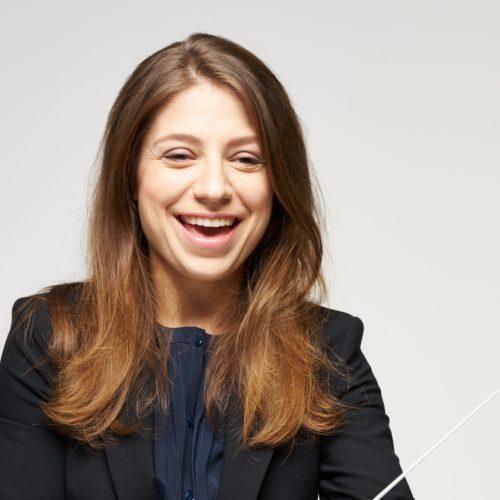
The Baltimore Symphony Orchestra and its musicians today agreed a five-year contract to September 2025. It is their first long-term contract since the last one expired in 2016.
Covid has changed everything.
The terms include:
– Covid reductions during 2020-21 season, followed by annual increases. Year 1: 26% reduction in base scale and a 75% reduction in overscale and seniority Year 2: 1% increase in base scale Year 3: 1% increase Year 4: 1.75% increase Year 5: 2.5% (reaching a minimum annual wage of $90,100.
– Gradual increases in personnel, moving from 75 full-time musicians now to 85 in 2025.
– Continuation of medical, dental, vision, life, long-term disability, and instrument insurance.
– Formation of a diversity task force.
– Increased responsiveness in scheduling and programming to pursue new earned revenue and community engagement opportunities.
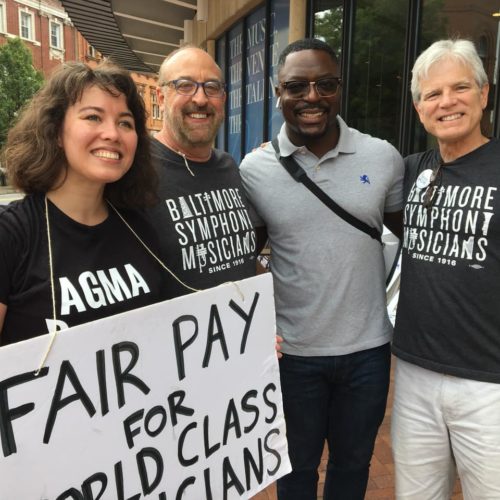
Cecilia Bartoli today signed on for six more years as Artistic Director of the Salzburg Whitsun Festival, taking her through to 2026. ‘I am delighted to extend our inspiring collaboration with Markus Hinterhäuser for another five years,’ she said.
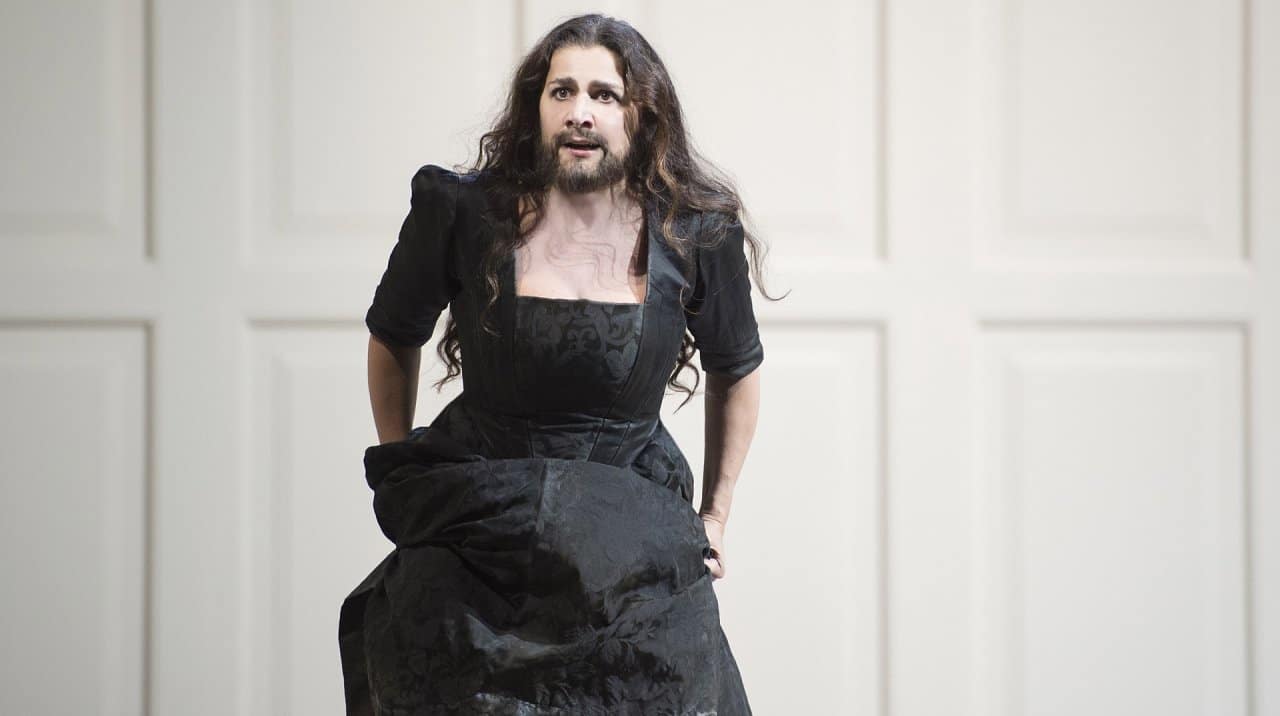
Joseph Anderer has announced his retirement from the Metropolitan after 36 years in the hot seat.
Here’s what he writes on the Met musicians’ page:
When I was about 10 or 11, not long after my dad died, my mom woke me up one morning- she had decided that (largely because we had a piano), I should take piano lessons. I think I may have been upset at first about that, but I did it- there was an old Cossack in our neighborhood who taught piano, and I went to him for lessons. He was a very colorful character for our neighborhood, but I did all the basic stuff, Hanon, etc., and I may have started to enjoy it (sort of, but not the Hanon stuff!). Anyway, there was this guy who had his lesson before me- I couldn’t see him, but I could hear that he was a monster on the piano, and he caught my ear in a sort of primal way, I suppose. I later learned who he was, this tall dude named Leon Bates, who went on to an excellent career- I heard him play a concerto with the Queens Symphony when my wife played there and my friend was conducting, and I have other friends who toured with him playing chamber music. I very belatedly take my hat off to him, probably my first inspiring musical figure!
Then I went to high school, where I discovered that there isn’t a piano in the band ☹. They made me pick out an instrument, and I really wanted to be in the band by then. My first choice was the clarinet (my wife finds that amusing for some reason), but #2 was the horn, and when they found that out, they grabbed me by the ear and took me to be examined by the horn teacher, who looked at my teeth and said I’d probably be OK. They sent me home with a horn, and I started fooling around with it.
Now I MUST tell you a bit about my teacher, Giacinto Vitacolonna, who was in his upper 70’s at the time- in his youth he had studied with Anton Horner (Philly Orchestra principal, and teacher and “godfather” to a whole generation of the greatest East-coast American players). Vitacolonna had played in the Sousa Band in his early days, and he had been 1st horn at the Aldine, a silent movie theater- at the time, it was a higher-paying job, with more weeks of work, than the Philadelphia Orchestra- he told me he had turned down a job offer from them! He also got to choose from the first shipment of Horner-model Kruspe horns after World War I. I think he played quite a lot with the Philly Orch as an extra- he told me stories about Mengelberg and Strauss. And HE was my first teacher!
At St Joe’s Prep (my high school), we had a lot of great instrumental teachers- several were retired long-time Philly Orch members, etc. My first band director was none other than the very young Bill McGlaughlin, still earning a degree at Temple U, but already subbing with the Philly Orch as a trombonist. You may know him as the former host of “St. Paul Sunday”, or currently (for many years now) ‘Exploring Music”, syndicated all over the USA. A great mentor!
Bill got a job with the Pittsburgh Symphony as a trombonist, and was later the Music Director of several orchestras including the Kansas City Philharmonic, all the while pursuing his other career in radio. Our next director was Bob Fitzpatrick, also earning a degree at Temple, and later the Dean of Curtis Institute. In the years that followed I played a lot of chamber music with him, and also a couple of concerti after he started conducting various orchestras in the area. I was a very lucky little fucker, and I progressed well on the horn with such great guidance.
My mentors also sent me up to Symphony Club (actually quite close my home), which was a community orchestra, but with an old and deep long-term connection to the Fleisher Collection, then (maybe still) the largest collection of orchestral music in the world. They say that Stokie would do recruiting there when he was the Music Director of the Philly Orchestra, back in the day. We read a different complete symphonic program every Thursday night! That’s where I learned to sight-read, and also to transpose horn parts. Arthur Cohn was the conductor, (he ran a music publishing company and was a former director of the Fleisher Collection), a tough-as nails New Yorker (I aspired to that, too!). He didn’t generally stop for anybody or anything, so we all had to keep our wits about us! I once missed a subito piano in a Beethoven symphony (and we all know how important those are in Beethoven’s language), and boy did I hear about that! He knew I wanted to be a musician, unlike most of the other amateurs, so he was a bit tougher on me! Many years later, I heard an LP of Dvorak’s Symphony #5 (the real #5, not the “New World”) for the first time, but I thought “this piece seems SO familiar!”- I found a list of Symphony Club programs from that time, and damn if I hadn’t already played that piece, but ONLY on that one Thursday night! What great training for the price of a trolley ride!
I got great encouragement from these various musicians in my life, and I got more and more serious about pursuing music as a career. I decided to audition for several great schools, including Juilliard, and I was accepted there, by the skin of my teeth, as I saw it! I had other opportunities with more financial assistance, but I thought, having only been a hornplayer for about 3 ½ years, I really needed to be in a “pressure cooker” environment, and I felt very committed to that. I think I made a very good decision to borrow money and go to NY. My teacher there was Ranier DeIntinis, also the teacher of Erik Ralske, my partner in the Met principal game. He also taught my dear friend Jeff Lang, whom I met when he was still in high school- he’s now associate principal horn in Philly
At Juilliard I was in James Chamber’s orchestra rep class, although I never studied horn with him. One day I got a call from the NY Phil, where he was the personnel manager- one of the guys was sick- could I come over and sub for him in a performance that night?- it was “The Planets”, with Maestro Bernstein! I ran over to their library, got the part, and woodshedded that damn thing for the entire afternoon! The concert seemed to go pretty well for me, and I also got to play a recording session the next morning. Around that time they had to revise their sub list- one guy had joined the orchestra, another had left NY, and so on. Somehow, I ended up in the #3 spot on their list that spring (I was still an undergraduate then). If you find yourself in the first 3 on the list, it means you get called for ALL of the Mahler, Bruckner and Strauss pieces with 8 horns, also Varese (well, after Boulez showed up, anyway) 😉. I managed to stay on that list for 14 years as a freelance player, toured all over the world with them, and what a great experience all that was!
I was a very happy and VERY busy freelancer, and I didn’t feel I had time to prepare an audition recording when the Met 1st horn audition came up in 1984. I didn’t even send in a letter, but I had worked with several of the Met guys, and at least one of them told me I was NUTS not to take the audition! One day, I received a letter telling me that I had been passed out of the “tape” round (never having applied for the position!), and I was invited to the live prelims. You can imagine how I felt, but THEN a while I got a call asking me to be the interim principal for the 84-85 season!!
I decided then that I should probably take this whole audition thing seriously, and I worked my buns off that summer. I even ALMOST won the audition (I was runner-up to Julie Landsman). It was all an amazing experience, and at the end of that year, former principal Dick Moore decided to retire (he was my wife’s teacher, and we became good friends during that year). That spring, I went off on tour with the NY Phil, having heard that I was being considered to replace Dick, but fully expecting to go back to my freelance life, with a quintet I dearly loved, and things like Broadway and other gigs, which I saw as supporting my “quintet habit” (my quintet had a saying when we were offered a concert, “If you have to ask what it pays, you can’t afford to do it”). I had also been a member of St. Luke’s Chamber Ensemble (and later on the Orchestra of St. Luke’s) already for 10 years at that time- they’re still my real musical “family”.
As it turns out, a “tour buddy” of mine (who was married to a member of the Met orchestra) saw me at breakfast in Berlin, called me over an told me that I HAD to call the Met right away so they could hire me- the story of that day is so zany- trying to make a collect call on a German pay phone (impossible at that time), administrators letting me into Zubin Mehta’s dressing room to use his phone after he went to the stage (I got the bosses’ answering machine), and I finally called from Berlin hornist Klaus Wallendorf’s house late that night (we were going to Dresden the next day, and it was still EAST GERMANY back then!)-that call just HAD to happen, and it DID, on that night 35 years ago!
To make a very long story a tiny bit shorter, I guess you could say I lived happily ever after, with the greatest group of musicians and colleagues in the world. I moved back to the principal chair in 2003, at first on a one-year basis. After season which included Tristan, the Ring cycle, Italiana and other such ditties, plus a concert series that concluded with Mahler’s 9th, I was given the principal chair with tremendous support from my colleagues and my “bosses”.
I have enjoyed all of this thoroughly, but a year ago I discovered that I was the oldest principal in the orchestra, and also I figured out that nobody my age (as far as I know, in the entire world), was still doing the kind of schedule the Met Orchestra does (well, that was THEN… ☹). Besides, there’s something quite perverse, if not outright WRONG, about the horn-player being the oldest principal, in my humble opinion! I thought it wise to say “enough”, even though it really wasn’t enough for me, and I’ll miss it so much… I’m very grateful for all of this and also for many experiences I haven’t included here, but only a serious nerd would still be reading this, and if you’re still here, thanks so much for your patience!”
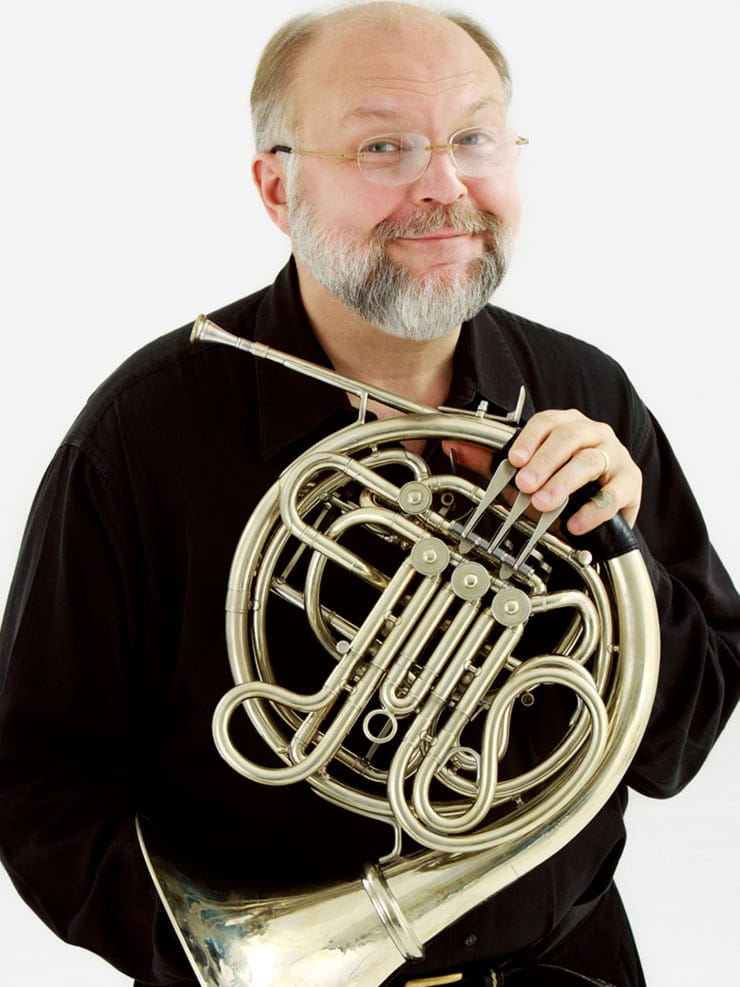
It was announced today the Queen had awarded Her Majesty’s Medal for Music for 2019 to the pianist Imogen Cooper.
The Queen’s Medal is presented annually to musicians who have had a major influence on the musical life of the nation. Nominating committee chair Judith Weir said, ‘A historically important British solo pianist, Imogen Cooper has devoted her extensive, and ongoing, performing career to her repertoire, richly upholding the values of classical music as an inspiration to listeners and colleagues worldwide.’
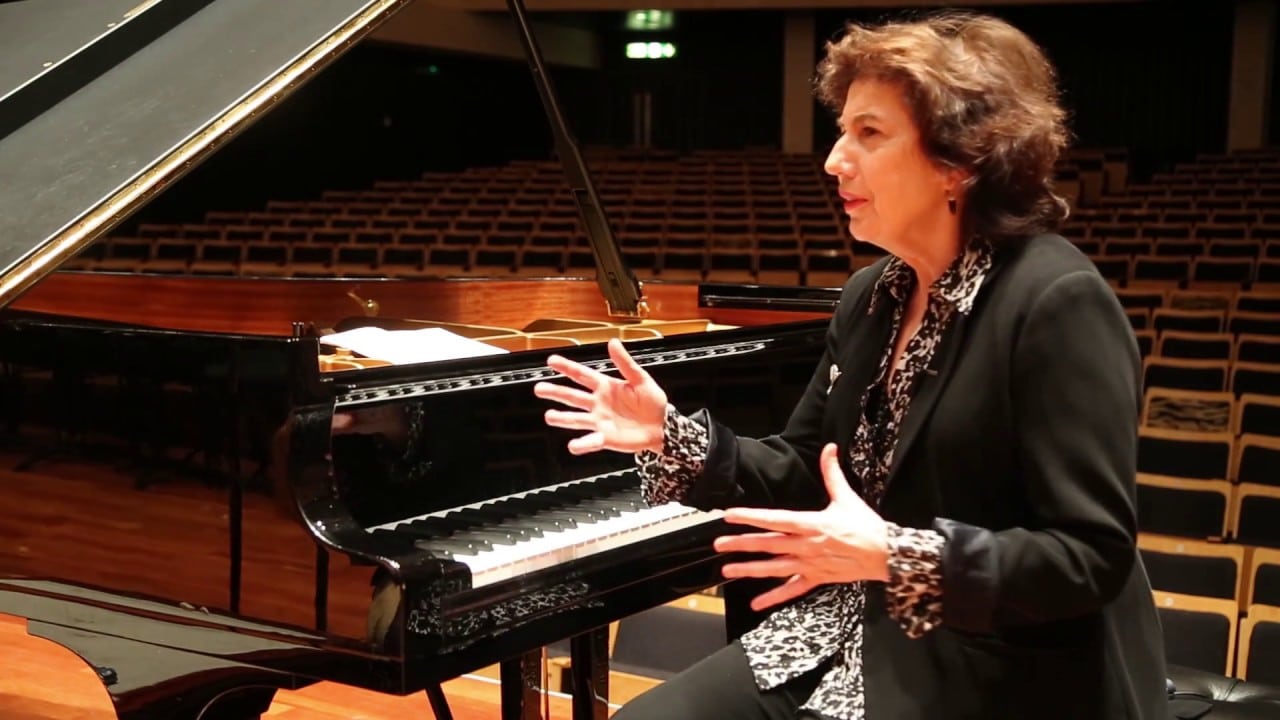
Le Figaro reports that the Théâtre du Châtelet has dismissed its British artistic director Ruth Mackenzie, following an audit which revealed ‘managerial and financial problems.’
Mackenzie, who arrived from the Holland Festival in 2017, previously headed London’s 2012 Cultural Olympiad, Manchester’s International Festival and, a long time ago, Scottish Opera.
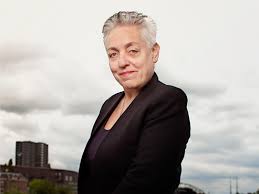
UPDATE: Mackenzie has told the Guardian her dismissal was ‘brutal and inexplicable’.
‘I can’t believe it was done in such an unbelievably brutal way. A letter was sent to my lawyer terminating my contract and telling me I was to vacate my office, my email was being cut off and my salary stopped.’
From a correspondent:
In a lawsuit filed before the Single-Member Court of First Instance in Piraeus, Leonidas Kavakos, resident of Wollerau, Switzerland, asks the court to convict Charidi and Charalambos Charalambos of Anastasia, with payment of compensation of one hundred thousand euros as monetary satisfaction for moral damage, as well as personal detention for 12 months.
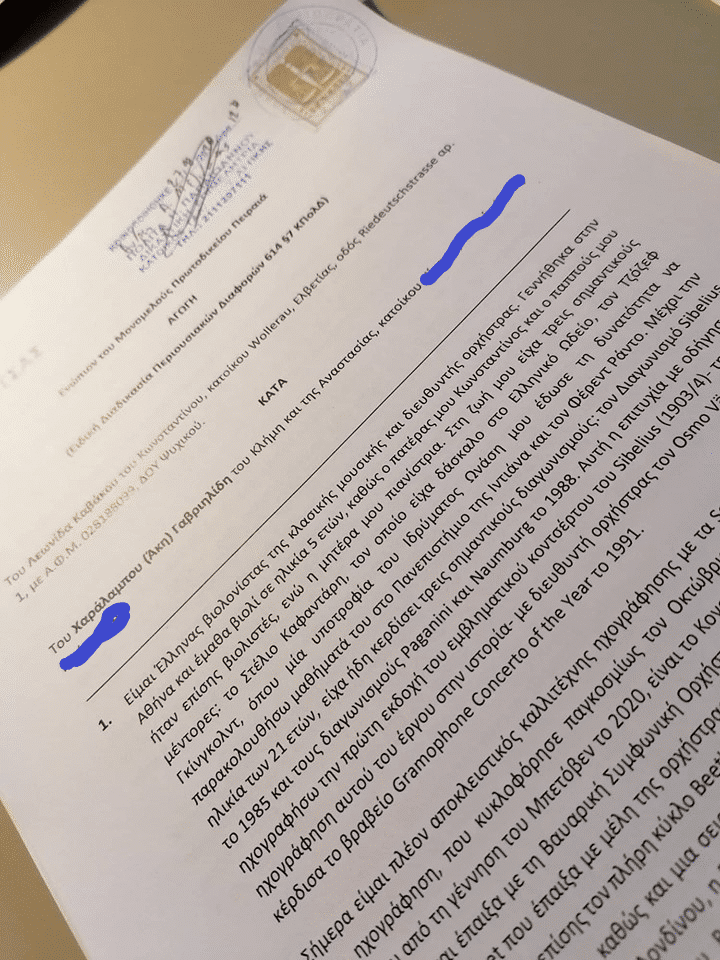
We reached out to Leonidas Kavakos for comment. He told us: ‘I gave an interview to a Greek newspaper about the Beeethoven violin concerto. In it I said Beethoven breaks many rules in music. There is a violent element, perhaps coming from his childhood, something martial. In Greek this word is ‘aris’.
‘The journalist wrote it correctly. This blogger did something horrible. He showed up on my Facebook page and asked the meaning of the word. Before I could reply, he gave the word as ‘aryan’, published a disgusting article calling me a Nazi and saying I should play in camps for refugess. At the end, he put a photo of Hitler.
‘After that, any Google search of my name in greek linked me to racism.
‘I asked the guy to change his article or I would go to court. He kept on sending it round. So I have to sue him. The wording of the penalty for defamation is standard in Greek law.’
Kavakos comes from a family which fought the Nazi occupation and helped Jews to escape. The accusation was singularly misjudged and the blogger’s failure to retract has led to this inevitable outcome.